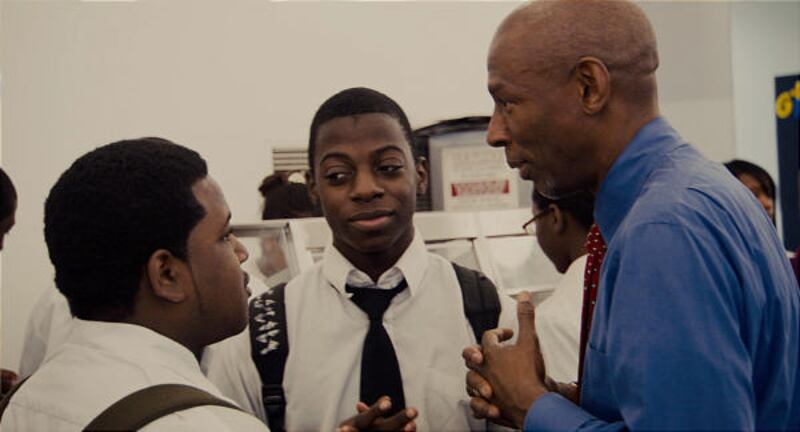On most critics' list of "must see" films this fall is Davis Guggenheim's documentary "Waiting for Superman." The film follows five families trying to exit problematic compulsory public schools. Specifically they seek enrollment at high performing public charter schools. Because of high demand for these charter schools, admission happens only through lottery. As Guggenheim draws audiences into these compelling stories, he also provides a hard-hitting critique of contemporary public education in America.
When you see the film (which you must), be prepared to become emotionally involved as you yearn to see five hopeful children get what all children deserve: safety, encouragement, support and rigorously enforced high expectations.
While you absorb the stories, don't miss the analysis and the subtext. As for analysis, "Waiting for Superman" indicts structural problems such as complex regulation, inflexible employment contracts and outmoded educational practices as causes for American public education's descent into the bottom quintile of educational performance among industrialized countries.
But the critically important subtext for the entire film, in my mind, is the preeminent importance and promise of excellent teaching.
This subtext is subtle, but I thought it was brilliantly captured in two brief interchanges between Geoffrey Canada and two young black male students. Canada is one of the film's protagonists — the idealistic educator responsible for the much-sought-after public charter school Harlem Success.
The exchanges happen fast, and neither is essential to the narrative — so look for them. In one, Canada, sees a boy out of the corner of his eye in the hallway who has untucked his uniform white shirttails. Mr. Canada does a double take and then asks the boy in friendly cajoling tones why he is not complying with the dress code.
In the other exchange, Canada praises the answer of an elementary school pupil. He tells the boy that his comprehension of the material is so good that he wants him to consider being a teacher at Harlem Success. "When you finish college I want you to come and teach for us."
These vignettes are packed with powerful lessons about what makes for the excellent teaching exemplified at places like Harlem Success.
Consider the lessons taught in the dress code issue. Canada shows that integrity in the smallest details is important enough to correct immediately. A less caring adult, in the midst of being filmed for a major documentary, could have let the kid (dressed neatly by neighborhood standards) walk on by. But a great educator like Canada cares enough about the boy to let him know that he is noticed the moment he veers off track and encourages him to straighten up. No wonder Canada talks about guaranteeing results.
In the other exchange ("When you finish college …"), Canada not only provides immediate and powerful acknowledgement of good performance, but through his response he reinforces even higher expectations, namely college graduation. And Canada rightly re-enshrines school teaching as one of the great learned professions to which high achieving students should aspire.
"Waiting for Superman" has already spawned debates about policy. I hope, however, that it will also forge consensus around the truth that teaching really matters. I hope it will teach us that the same excellent instruction that has helped whole classes of randomly selected inner-city kids outperform the average suburban pupil is the result of concrete professional skills, behaviors and attitudes that can be acquired, refined and perfected. Such excellence is so critical to the future well-being of our society that we must more effectively recognize and reward it. Through proper recognition and reward, superb teaching can become plentiful instead of rationed or diluted.
Enjoy the film.
Paul Edwards is editor of the Deseret News editorial page. E-mail: pedwards@desnews.com


